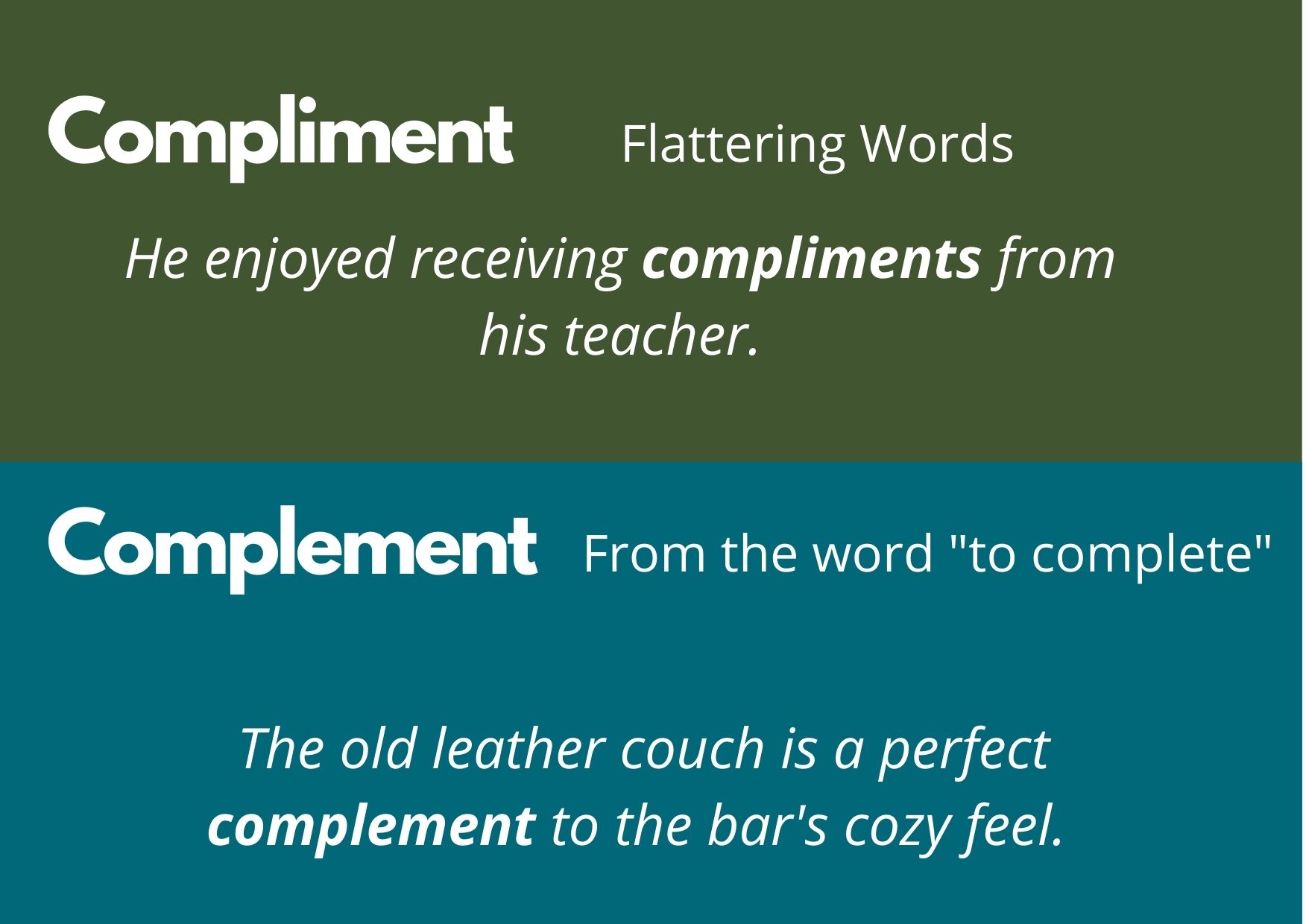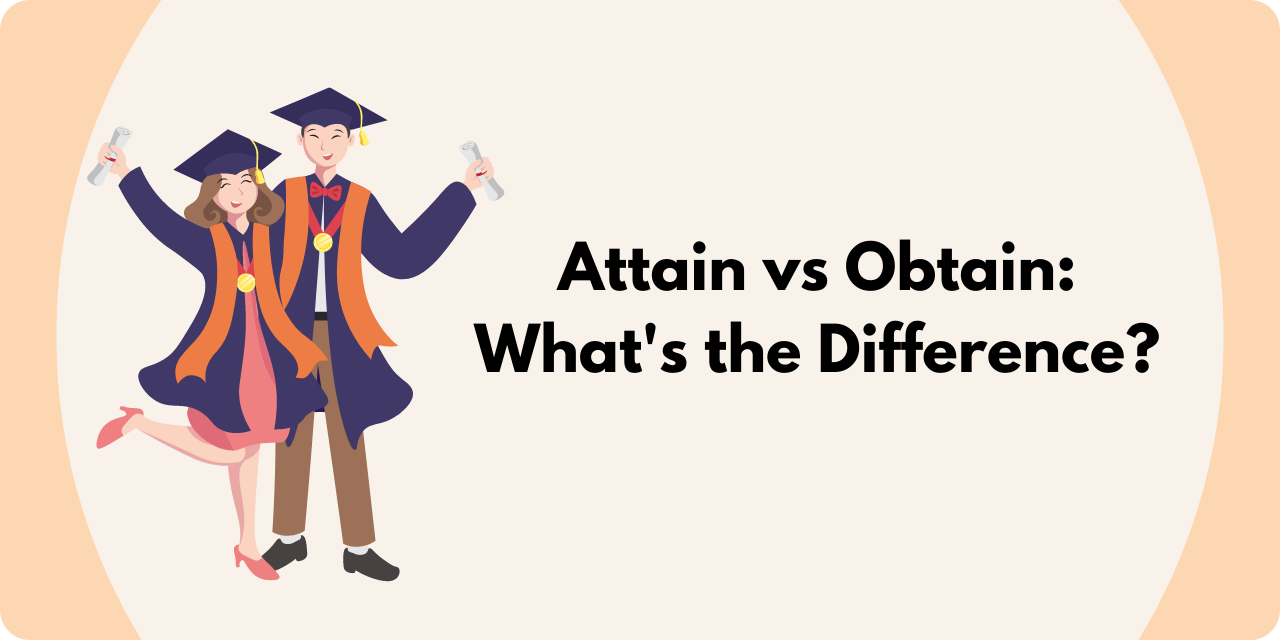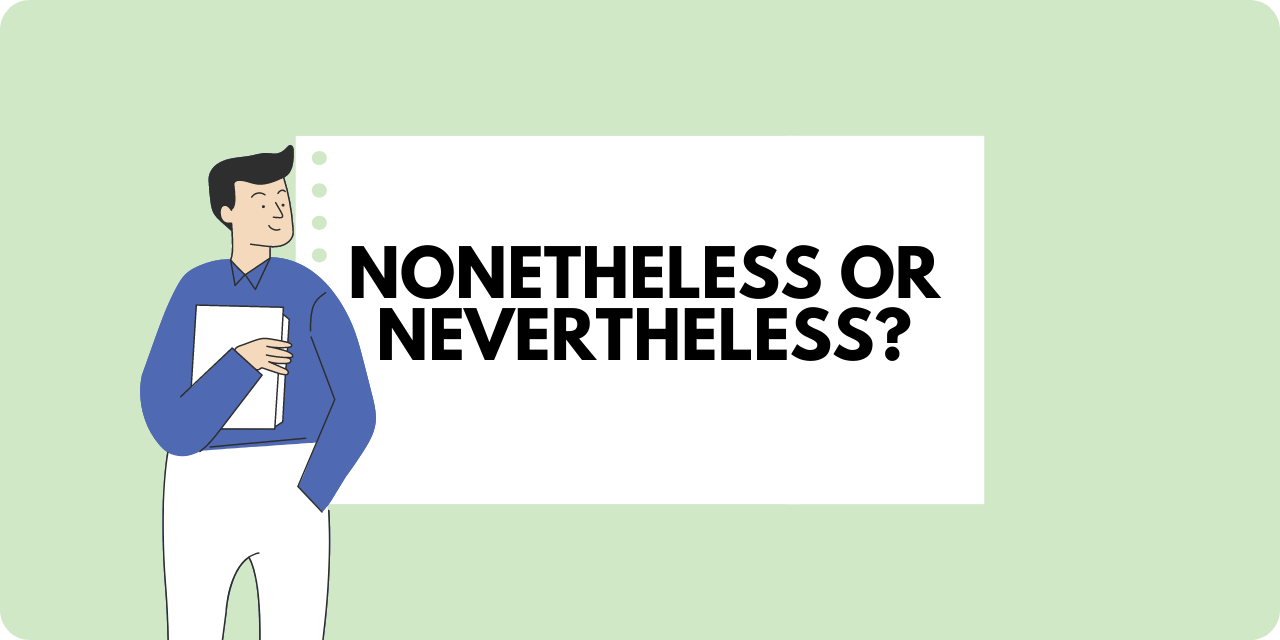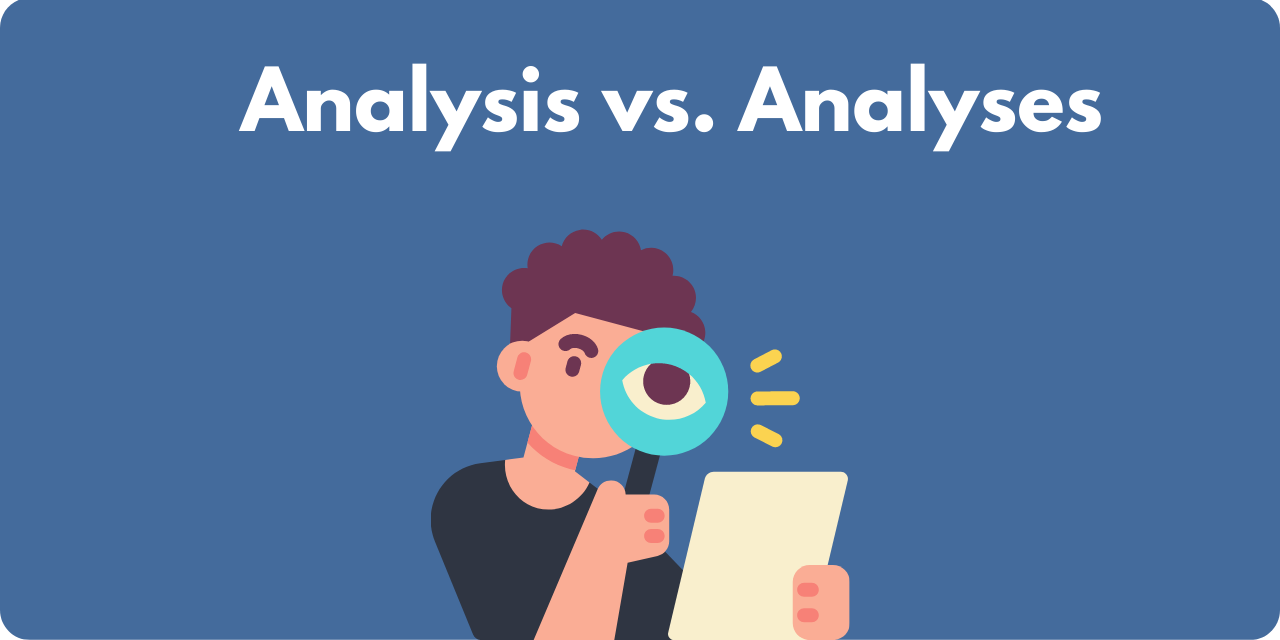Remember this: The word “complement” is related to the word “completion.” Meanwhile, the word “compliment” refers to flattering acts or words.
Everyone loves a compliment. Or is it a complement everybody loves? In any published list of commonly confused words, you’re sure to find these two. However, complement and compliment don’t have to be confusing! Here’s a breakdown of the two terms.
Complement Definition
Complement and compliment are derived from the same Latin root word, and because of this, they used to share some meanings. In the past, the word “complement” once meant “to compliment,” but that meaning is now obsolete. Compliment also has an archaic meaning; the word “compliment” used to mean “gift.”
How is the word “complement” defined nowadays? If you can remember that complement looks a bit like the word “complete,” that can be helpful for remembering some of its most useful meanings. A complement is something that perfects or completes something else.
- His shirt perfectly complements the color of his eyes.
- They make a lovely couple; their demeanors are a great complement to each other.
Grammar
When discussing grammar, a complement is a word or group of words that completes a grammatical construction. It makes up part of the predicate of a sentence. The complement describes the sentence’s subject or its direct object. If the complement modifies the subject, it’s called a subject complement. However, if it follows the direct object and modifies or renames it, it’s called an object complement.
Science
In science, complement has yet another meaning. The complement system consists of proteins that circulate through your blood. The name of the system is based on its function because specific proteins complement specific antibodies. Here’s a short explanation of the complement system:
It is a set of more than 20 different protein molecules that are always found in the blood. In the case of infection, this molecule system is activated. It then leads to a sequence of events on the pathogen’s surface that help destroy it and eliminate the infection completely.
Mathematics
You may also hear about complements in mathematics. In math, a complement is an amount that is added to another amount to complete it. In geometry specifically, the complement is that quantity than an arc or angle is short of 90 degrees. Here are a few examples:
- Let’s say our universal set contains all of the United States. A possible subset is the New England states. The complement would be the set that contains all of the other sets that aren’t a part of New England.
- We say that two angles complement each other when they add up to 90 degrees. The word complementary comes from the Latin “completum,” which means “completed.” This is because right angles are considered complete angles.
- The definition of complementary goods in economics is fascinating. Although these items have little to no value on their own, they can add value to other items. Think about hot dog buns as a real-world example of a complementary good. There are very few people who use hot dog buns alone. However, many people love to eat hot dog buns when they contain hot dogs and plenty of toppings.
Complement as a Verb
What does complement mean when it is used as a verb? Generally, it means to complete, to form a complement to, or to provide something lacking. Here’s an example of complement as a verb:
One type of technology doesn’t replace another; it complements it. For instance, Kindles do not threaten books, and elevators do not threaten stairs.
Complement Synonyms
- Addition is a synonym. It means that the amount added completes a whole.
- A companion is a match or a mate. Some versions of the Bible use “a helper as [the first man’s] complement” to talk about the first woman.
- Completion is the state of being concluded, whole, or fulfilled.
- A counterpart is one out of two parts that complete or complement one another. In the context of relationships, a counterpart often refers to a match that fits well.
- Enhancements intensify or increase the value of something. This definition closely corresponds to a complementary good or service.
- Makeweights are an amount that completes the desired weight on a scale. If you had six pounds of a substance and you wanted to have ten pounds in total, the four pounds that you add to reach the goal weight are considered your makeweight.
Compliment Definition
The word “compliment” is defined as an expression of respect, regard, praise, or commendation. A compliment can be a simple, courteous greeting or more of a formal act. Here are some examples:
- Being trusted is a much bigger compliment than being loved.
- I’m not giving you any compliments; you don’t deserve that kind of attention.
Compliment as a Verb
When used as a verb, the word “compliment” means to congratulate, praise, show kindness, or say something admiring to another person. Compliments often come in the form of gifts and friendly gestures.
You can magnify others’ strengths rather than their weaknesses by complimenting them.
However, praise isn’t the only definition of the word “compliment.” In the Merriam-Webster Learner’s Dictionary, there are examples of how native speakers may use the phrase “compliments of.” In the first example (found below), the phrase indicates the provider of something that was given at no charge. The second example uses the phrase in a sarcastic sense to refer to the source of something that was unwanted.
- We were served a free dinner, compliments of the restaurant.
- I awoke with a terrible headache, compliments of the drinks I indulged in the night before.
Compliment Synonyms
- Adulation is a form of flattery that is excessive. It’s linguistically related to a Latin word for the manner in which dogs fawn over their masters.
- Flattery means favorable comments about a person. However, it can also refer to insincere remarks.
- Homage refers to respect or honor paid to a person, especially in a public or formal setting.
- Praise is the act of expressing admiration or favor. When you sing someone’s praises, you’re expressing high approval for them.
Compliment vs. Complement: Remembering the Difference

How can you tell the difference between compliment and complement? One way is to give yourself a compliment:
Are you intelligent, generous, or compassionate? Tell yourself that, and then acknowledge: I love how intelligent I am!
When you acknowledge the compliment, you’ll remember that the letter “I” makes the difference between the two words. Compliment and complement are homophones; they sound the same but have different meanings and spellings.
Another trick to remember the difference between compliment and complement is to associate the “I” with insult (the opposite of a compliment). Alternatively, to remember the word “complement,” you could think of the word enhance when looking at the “E” in the word. Enhancement is a synonym for complement.
Complimentary vs. Complementary
Aside from compliment and complement, what about related words such as complimentary and complementary? Both of these words are adjectives.
Complimentary means “favorable” or “expressing a compliment.” In reference to items or services that are provided as a courtesy, complimentary means “free.” Meanwhile, complementary is a word that describes something that enhances or emphasizes the qualities of something else.
- The busy woman said that the nice thing about her myriad responsibilities is that they’re all complementary.
- The developers of both projects were working toward building complementary buildings with a shared parking lot.
- In medicine, the word complementary refers to additional treatment or alternative medicine practices administered alongside more traditional medicine.
- Complementary medicine is used by about one-third of American adults. Between the years 2002 and 2012, usage rates for yoga classes, acupuncture specialists, and chiropractors increased quite a bit among those without insurance.
Related: We have a whole section on similar sounding words and expressions. Learn about the difference between A While and Awhile, Weather and Whether and Hear Hear vs. Here Here.






